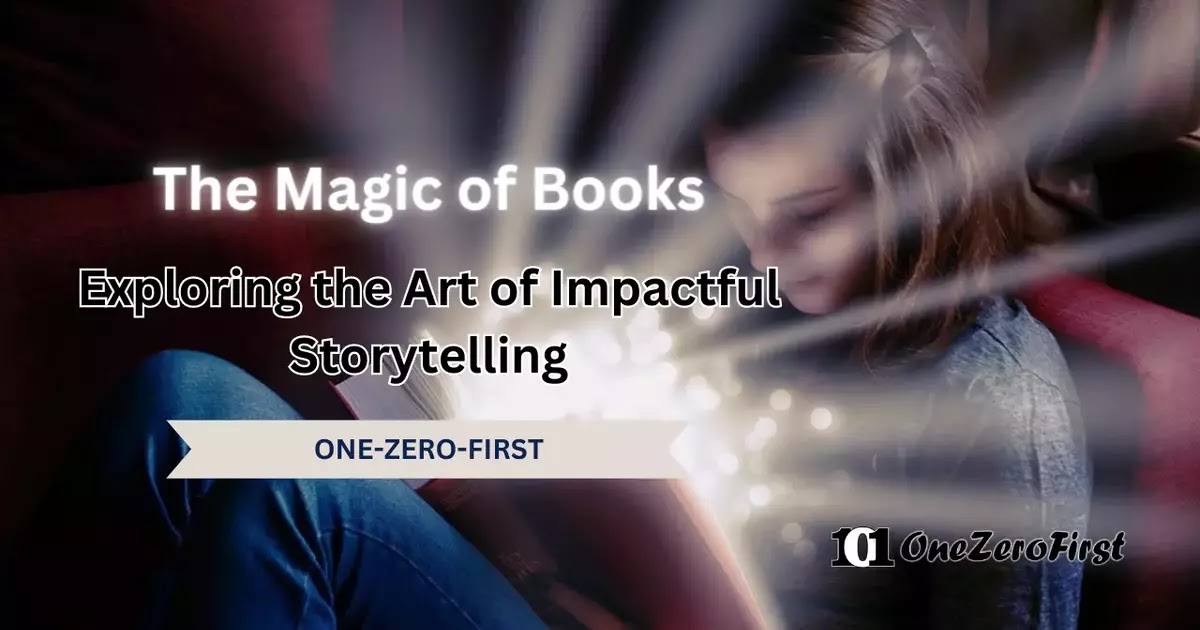The Essence of Storytelling
Stories have been an integral part of human existence since time immemorial. They have served as vessels of wisdom, knowledge, and entertainment. But beyond that, storytelling is a profound means of human connection. It transcends boundaries, cultures, and languages, speaking directly to the core of our shared experiences. Through storytelling, we can explore the depths of human emotions, embark on epic adventures, and gain insight into the complexities of life.The Elements of a Captivating Story
To create a captivating story, certain elements come into play. First and foremost is character development. Characters breathe life into the narrative, making readers emotionally invested in their journeys. Engaging plotlines, filled with twists, turns, and suspense, keep readers eagerly turning the pages. The setting and atmosphere create a vivid backdrop, transporting readers to different times and places. Themes and messages resonate deeply, provoking thought and reflection.The Role of Books in Storytelling
Books serve as a sanctuary for storytelling. They house a myriad of genres, from fantasy realms to historical sagas, from thought-provoking dramas to heartwarming romances. Through books, we embark on immersive reading experiences, where the words on the page come alive, painting vivid images in our minds. The written word captures the essence of storytelling, allowing us to dive into captivating narratives and explore the depths of human imagination.The Transformative Power of Stories
Stories possess the remarkable ability to shape perspectives, ignite empathy, and inspire personal growth. They challenge us to see the world through different lenses, fostering understanding and compassion. Stories spark our imagination, igniting our creative fires and inviting us to dream beyond the boundaries of reality. Through stories, we embark on transformative journeys, discovering new insights about ourselves and the world around us.Unleashing Your Inner Storyteller
Storytelling is an art that resides within each of us. Finding your unique voice as a storyteller is an exploration of self-expression. It involves embracing your experiences, emotions, and imagination, and infusing them into your narratives. Craft compelling stories that resonate with authenticity and connect with readers on a profound level. Embrace the power of storytelling as a medium to share your voice and touch the hearts of others.Books with Impactful Storytelling
In the realm of books, certain titles have become timeless treasures, renowned for their impactful storytelling. Let us explore three books that have left an indelible mark on readers:- "To Kill a Mockingbird" by Harper Lee: This timeless classic delves into themes of racial injustice, morality, and innocence. Through the eyes of Scout Finch, the novel explores the deeply ingrained prejudices in a small Southern town and the courage of one man standing up for what is right.
- "The Kite Runner" by Khaled Hosseini: This emotionally charged novel follows the journey of Amir, a young boy from Afghanistan, and his complex relationship with his friend Hassan. Set against the backdrop of political upheaval, the story explores themes of guilt, redemption, and the enduring power of friendship.
- "The Book Thief" by Markus Zusak: Narrated by Death itself, this poignant novel is set during World War II and follows the story of Liesel Meminger, a young girl living in Nazi Germany. It explores the resilience of the human spirit, the power of words, and the transformative nature of storytelling.
Conclusion
In the realm of books, the art of storytelling flourishes, captivating readers and leaving an everlasting imprint on their hearts. Through stories, we experience the power of connection, empathy, and personal growth. Let us embrace the magic of storytelling and honor the enchanting tales that have touched our lives. As we turn each page, may we never cease to be amazed by the transformative power of stories.FAQs
How can I become a better storyteller?
Improving storytelling skills requires practice and honing your craft. Read extensively, analyze storytelling techniques, and experiment with different narrative styles. Seek feedback from others and embrace opportunities to share your stories.
Can storytelling promote social change?
Absolutely! Stories have the power to raise awareness, challenge societal norms, and inspire action. They can shed light on important issues, spark conversations, and galvanize communities toward positive change.
Are there any classic books known for their storytelling?
Yes, many classic books are revered for their storytelling prowess. Examples include "To Kill a Mockingbird" by Harper Lee, "Pride and Prejudice" by Jane Austen, and "The Great Gatsby" by F. Scott Fitzgerald.
How can storytelling benefit children's development?
Storytelling enhances children's cognitive, emotional, and social development. It stimulates imagination, builds language skills, fosters empathy, and nurtures a love for reading.
What are some modern books that captivate readers through storytelling?
Contemporary books such as "The Kite Runner" by Khaled Hosseini, "The Nightingale" by Kristin Hannah, and "The Alchemist" by Paulo Coelho are known for their captivating storytelling and compelling narratives.
